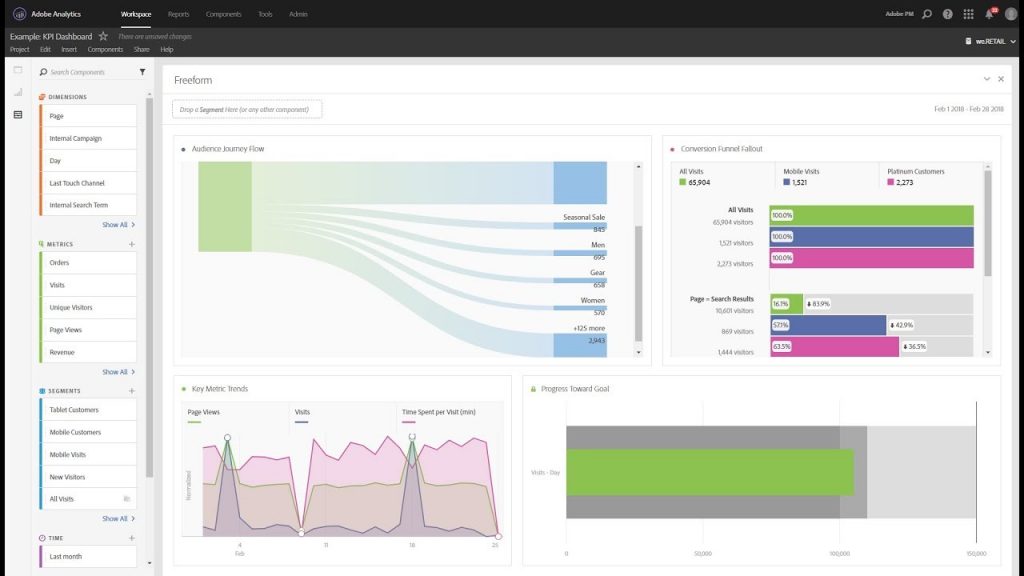Although Adobe now owns more than 50 companies in its effort to be the leader in digital experience, there is one move that really propelled their growth and success. Ten years ago Adobe acquired Omniture, which is now known as Adobe Analytics.
Shantanu Naraye, CEO of Adobe, said in a statement, “For designers, developers, and online marketers, an integrated workflow—with optimization capabilities embedded in the creation tools—will streamline the creation and delivery of relevant content and applications.” Industry experts doubted whether this was the correct move at the time, but Naraye quickly updated them on Adobe’s future vision.
A Digital Future
Omniture was one of the first big moves Adobe made, which then led to a modern cloud software company that is leading the industry. Omniture has certainly evolved and is now known as Adobe Analytics. It was built to create experiences for end users along with a set of tools that can help to build, measure, manage, and optimise a digital experience.
Just a few months after Adobe acquired Omniture, they also purchased Day Software, which is now known as Adobe Experience Manager.

Data is shaping and optimising digital journeys for customers and this has remained one of the main goals for Adobe from the start. Adobe added its analytics division to its education program soon after the acquisition, and this includes partner certifications and specialisations.
From Omniture to Adobe Analytics
Adobe and its partners across the world use Adobe Analytics to facilitate the integration between data, content, and creatives. Adobe Analytics is playing a growing role in the Adobe Experience Cloud and will continue to do so, showing just how big of an impact the acquisition of Omniture made.
Adobe Analytics has undergone more than a few changes over the years in their effort to remain a leading commercial analytics tool worldwide. Some of the many upgrades they implemented include:
- Integration with Adobe Audience Manager and Adobe Target
- Bringing together data from various points with Customer Journey Analytics
- Adobe Sensei for Content, Contribution Analysis and Anomaly Detection.
- Easier to use interface, introducing Analysis Workspace.
With these improvements implemented, Adobe continues to improve the way they collect and analyse data, and the role it plays in optimising the digital experience. Adobe continues to focus on data science powered by Adobe Sensei, which allows you to quickly assess data and recognise patterns and what is most helpful to users in terms of managing their data.
Looking to the Future
With so much data facing industries today, Adobe focuses on data science and data management. They believe this will help brands connect with their customers on a more personal level, which is why the company continues to provide a service offering that allows their customers to personalise their content, target messaging, and tailor their digital experience.
Although the core of the Adobe Analytics platform remains unchanged, the company will continue to improve their digital experiences to ultimately serve their customers in an ever-changing world.









